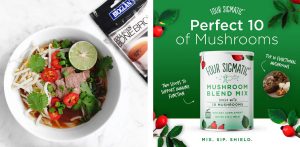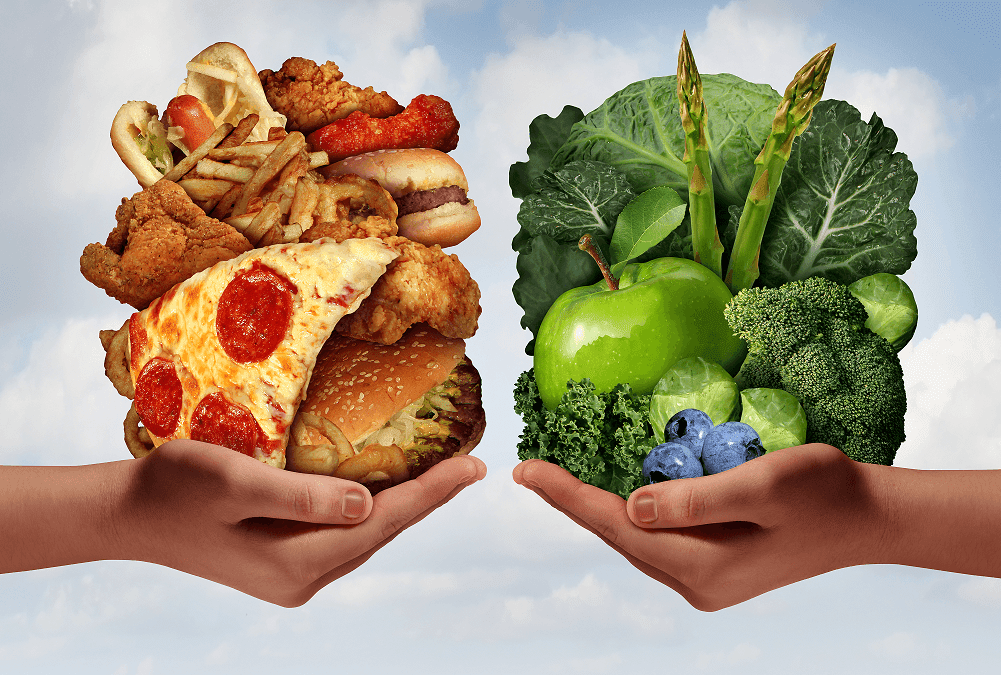
Easy & Healthy Food Swaps That Will Help You Lose Weight
26/02/2020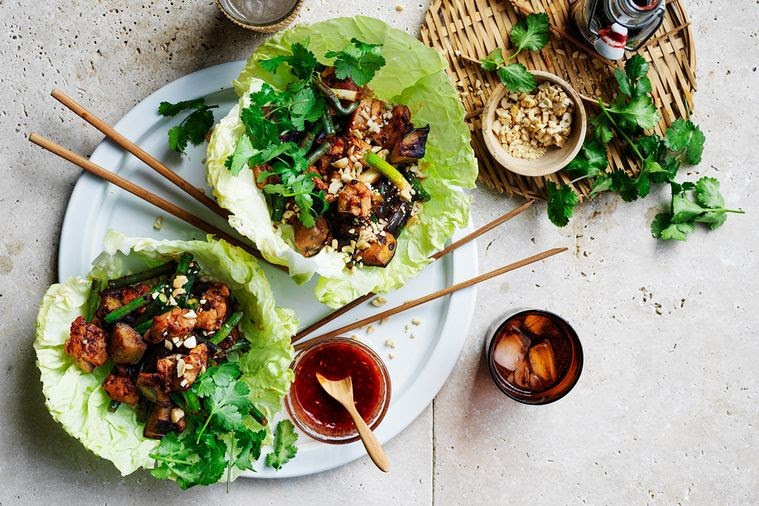
Lettuce Cups 4-Ways
06/04/2020COVID-19 Supporting & Strengthening Your Immune System When You Need It Most

Make your immune system more resilient to bacteria, infection and viruses than ever before.
This is an unprecedented time, a time for us to be focused on what we can do to protect ourselves, our families, our communities and our country – and be kind to each other.
Up to 80% of people infected have mild or no symptoms and up to 96% to 99% recover from the infection. But the death toll is predicted to be in the millions because of the large-scale, rapid spread and lack of immunity amongst the population.
There are two ways in which we can protect ourselves; the first is how to not get it in the first place and reduce spread, and the second is how to support your immune system so you are more resilient to infection.
Social distancing, practicing good hygiene, staying home and protecting those at risk is your first line of defence but how do you support and boost your immune system?
Here’s a list we have compiled to help you and your loved ones strengthen your first line of defence against viruses and bacteria (beyond the physical barrier) – the immune system:
1. Let food be your medicine! Eat unprocessed nutrient dense foods because your immune system relies on it to function optimally. Death from infections in the developing world is often not due to the infection itself but the body’s inability to fight it due to nutrient deficiencies. Add whole plant foods and lots of them, 5-8 cups per day, such as dark leafy greens, brightly coloured veggies, cruciferous veggies, sweet potatoes, and veggies that support the microbiome such as asparagus, swiss chard, leeks, carrots, onions and radishes.
2. Ensure adequate protein intake because protein is critical for immune function, in fact, every single one of your 7 trillion cells relies on it to function. Undereating protein is a big risk for infections and even death. Make sure to eat approximately 0.6 – 0.8g of protein per 1kg of body weight every day. An easy way to get protein in is protein powder in a liquid meal, protein powder won’t go off and it’s easy to store and buy. Other great protein sources include quinoa, tofu, tempeh, Greek yoghurt, eggs, mozzarella cheese, ricotta and cottage cheese.
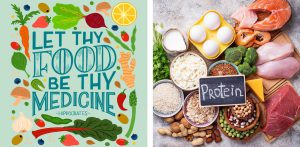
3. Cut out sugar, fried foods, gluten, mainstream dairy, fruit juices, processed carbs, trans fat most manufactured food-like substances and refined starches – they are anti-nutrient foods, meaning, they take nutrients from the body in order to digest them, they suppresses the immune system and make the body more acidic thus making you more prone to picking up viruses.
4. Eat 2 main meals and 1 liquid meal: you are not moving as much as you normally would – therefore sticking to 3 main meals (breakfast being a liquid meal) and 1-2 low calorie snacks has never been more important. Why a liquid breakfast? Because adding bio-available liquids such as MCT oil, and powders such as the Welleco Super Elixir multivitamin, Glow probiotic, collagen by Great Lakes and a quality protein powder allows the body to readily absorb the minerals and nutrients more rapidly. Powders are also a great way to add high quality and clean nutrients to your diet without all the potentially harmful effects found in many food sources. Plus, it will help you maintain a healthy weight and feel great, as it provides clean energy to burn throughout the day, fuels your brain and heart and boosts your immune system. It’s health insurance in a glass.
5. Snack right and stick to 1-2 low calorie snacks per day, that are both nutrient dense, lower in calories and health promoting, such as bone broth cup-a-soup with added super spices, Greek yoghurt with berries, sugar-free jelly with BCAAs, miso cup-a-soup, seaweed snacks, bulletproof coffee and homemade mug cakes with whole egg, cocoa, almond meal, cinnamon and protein powder. High fibre fruits like apples, pink grapefruits, pithy fruits and kiwi are also excellent for both the immune system and gut health.
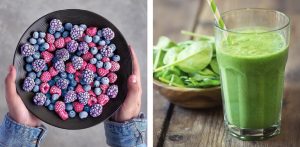
6. Get sufficient quality sleep! Sleep restores and heals the body and without adequate sleep, optimal immune function is near impossible. Sleep increases melatonin and growth hormone, cardiovascular function, regulates cortisol and lowers inflammation. Your body needs sleep to fight off infectious diseases, viruses and inflammation and to prevent you from getting sick.
7. Add superfoods and super-spices to your meals as they are antimicrobial, antiviral, anti-inflammatory and contain a host of other beneficial immune and health boosting properties. The top ones are; turmeric, ginger, cayenne pepper, garlic, onion, thyme, manuka honey, ginseng, cinnamon, medicinal mushrooms, berries and fermented foods such as kefir, Greek yoghurt, miso, kimchi and sauerkraut.
8. Practice meditating and breathing exercises daily to bring down stress levels, avoid emotional eating and alcohol drinking and reduce cortisol and inflammation. Studies found that high levels of stress can affect the gut bacteria to a similar degree as a high-fat diet. Furthermore, stress triggers cortisol and high cortisol temporarily suppresses your digestive, immune and reproductive responses as well as decreases your ability to absorb nutrients from food.

9. Incorporate Intermittent Fasting (IT) 4-7 days per week. Working or just being stuck at home can make you eat and snack mindlessly, purely because it’s there, from stress, boredom and because there are no rules. Firstly, don’t assume you can have snacks in the pantry, and you can exercise discipline – it’s too risky. If there is chocolate in the house, it will 100% call your name until you cave in and finish it. The best way to avoid it? Don’t buy it, ‘if it’s not in the house, you can’t eat it’. Secondly, we tend to get hungrier later in the afternoon and at night so practice the 16/8 IT: fast for 16 hours (8pm – 12noon) and feast for 8 hours, or even 18/6 – that way you can stuff your face in a 6 or 8 hour window with a full days calories and be beyond satisfied. On a scientific level, IT changes the function of cells, genes and hormones facilitating fat loss, induces cellular repair, gene expression related to protection against disease and enhances the body’s resistance to oxidative stress and inflammation – which is linked to accelerated ageing and development of numerous diseases including cancer, heart disease and diabetes.
10. Keep a daily routine going! PIVOT – adapt a new routine and show up! Continue your morning routine, get dressed for work and if you used to train in the morning, then continue to do so but from home, there are plenty of online programs out there – my absolute favourite is Tracy Anderson Online Studio which is $90 per month and no lock-in contracts. Commit to early morning walks with your partner or friend, stair sprints or YouTube yoga – and hold each other accountable. Adopting the right daily routine will keep you energized, mentally healthy and your mind and body will thank you for it. Whatever you do don’t start sleeping in, snacking, eating crap all day and 5000 snacks, start drinking alcohol at 11am, watch Netflix all day long and scroll through social media – it will derail your motivation in no time and buy you a one way ticket to ‘Slob-ville’!
11. Get sufficient sleep. Sleep hygiene is more important than ever to help the body repair and heal and because of its specific role in the immune system, in fact without adequate sleep, optimal immune function is next to impossible and will make you more vulnerable to viruses and bacteria. Enhance better sleep cycles by getting 15 minutes of midday sun which activates the pineal gland, responsible for releasing melatonin – the hormone that influences our sleep and wake cycles. Extra melatonin will help you sleep.
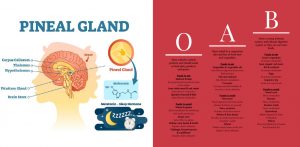
12. Eat right for your blood type. New research suggests that your blood type could make you slightly more susceptible to coronavirus. Meta-analyses showed that blood group A had a significantly higher risk for COVID-19 compared with non-A blood groups, whereas blood group O had a significantly lower risk for the infectious disease compared with non-O blood groups. Those with the virus, by comparison, were distributed as follows: 38% type A, 26% type B, 25% type O and 10% type AB,. Similar differences were observed in another study also. Whilst this doesn’t mean that people with type O blood type are immune, and not everyone who gets the virus is going to be type A. The authors of the blood group paper suggest that maybe it has to do with the anti-A antibodies that both type B and type O have. It is important to understand that the conclusion might be purely coincidental and that these are preliminary study results, in a non-peer reviewed preprint study.
13. Supplement! The foundation for any health support regime is a quality greens powder aka your daily ‘multivitamin’ which covers the basics; minerals, vitamins, antioxidants, polyphenols and nourishment on a cellular level as well as supports your body’s natural detoxification process, aids digestion, supports gut health and a healthy metabolism. A bio-available form (powdered) allows your body to absorb it instantly and easily. Other helpful supplements are vitamin D3 (1000-2000iu), vitamin C (500-1000mg), zinc (30mg), olive leaf (for its powerful antioxidant and immune boosting properties) probiotics and magnesium (which is needed for over 600 reactions in your body including: energy production, DNA repair, reduces anxiety and helps produce collagen).
These tips that can be easily added into your everyday health regime – a few each week if it seems overwhelming. And if we all stay calm, avoid the pandemic of fear, follow our common sense, and take care of ourselves and our families we can weather this and dramatically reduce sickness and death. But we have to come together (at least 1.5 meters apart!) as humans, and as a society to combat this pandemic.
